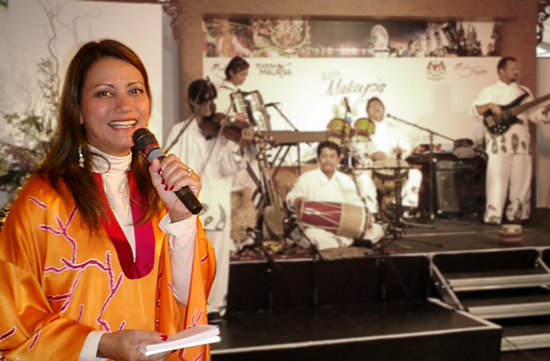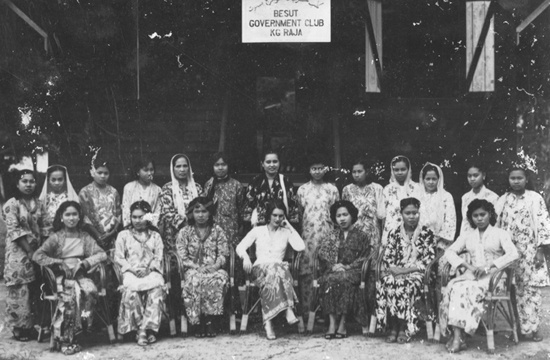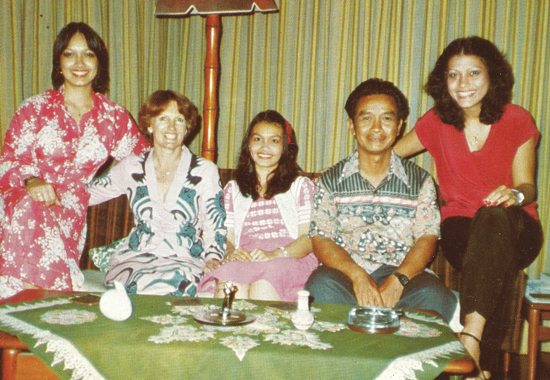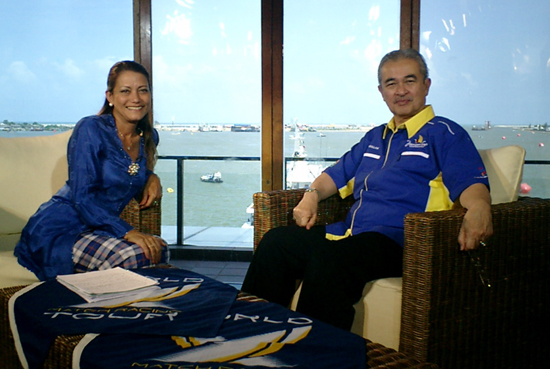(Corrected at 12:50pm, 6 June 2011)
DATUK Yasmin Yusuff is one of Malaysia’s most well-known faces and voices. The former Miss Malaysia, who also won third prize for Best National Dress in the Miss Universe Pageant in 1978, is a recognisable voiceover, emcee, acting and hosting talent. She is also a well-loved voice on the radio, having worked as a part-time announcer for RTM4 between 1986 and 1999, where she conducted the first-ever live-radio phone call-in on Malaysian radio.
Yasmin is furthermore an award-winning DJ who was voted Most Popular Radio DJ in 1997 by a Malay Mail reader poll. That same year, she won the Malaysian Music Academy AIM award in recognition of her contributions to radio – the first and only time the award has been given out. And in 2001, while she was WOWfm general manager, she bagged the Best DJ Award from the Music Authors’ Copyright Protection body.

She has cut two albums – Yasmin (1978) and Harapan (1980) – and acted in TV dramas and movies. Among her films are Mekanik, Selubung, Ringgit Kassorga, Gol dan Gincu, Susuk, Hooperz and Pisau Cukur. And to complete the picture, she has been involved in producing Cuci the Musical 1 and 2, and Lat Kampung Boy the Musical. She has also been the owner of a casting agency since 1986.
The eldest of three girls of a Malay Malaysian father and German mother, Yasmin talks about growing up in the best of both worlds. In this 20 April 2011 e-mail interview with The Nut Graph, she reminisces about a time when generosity, kindness and curiosity were the norm among Malaysian families and friends.
TNG: When and where were you born, and where did you grow up?
I was born in Cardiff, Wales in the UK in the 1950s where my dad was studying, and arrived in Malaysia aged about four months old. He was a government servant, which meant we moved every two or three years. So I literally grew up in Ipoh, Segamat [in] Johor, Pekan [in] Pahang, Kuala Terengganu, Petaling Jaya (PJ), Kuantan, and Kuala Lumpur. Phew! Add my AFS (American Field Service) school in the US and I went to eight schools!
Can you trace your ancestry? Where were your parents/grandparents from? What generation Malaysian are you?
I know I am descended from Mat Kilau (a Malay warrior who fought against the British colonialists in the late 1880s). My dad is from Pahang, and we are distantly related to the prime minister (Datuk Seri Najib Razak). There is some Bugis in our past, too.
I wish I had recorded my grandmother’s stories. She left us very suddenly before I had time to do that. Somewhere in my past was a court dancer, a young maiden taken by the sultan for his court, and they have always said I must have inherited her artistic genes.

On my mum’s side, an uncle’s genealogy research says they originally moved to Germany from Great Britain. My mum was a World War II refugee, escaping on a Red Cross train from the Russians in the middle of the night with the clothes on her back. The Germany she was born in is now Poland. (Corrected) My paternal grandfather was a teacher, and my German grandfather was an architect for the German government.
What is your strongest memory of the place where you grew up?
Hmm, see answer to question No. 1. Which place?
In Pekan, it was taking a trishaw to school and asking the [rickshaw rider] to drop me off early so that my friends wouldn’t see me. And watching movies on the giant screen they would set up in the padang near our house. Standing outside the class with my book around my neck for not doing my homework, and standing on a chair for talking in class.
In PJ, it was playing in the monsoon drains behind our house in Section 6, catching tadpoles. Once there was a flasher there! Also the drains on the way to Assunta Primary [School]. Hearing I Will Follow Him and Judy, Judy, Judy full blast from the nurses’ house next door.
In Kuala Terengganu, it was playing in the floods with our neighbours’ children and re-enacting movies like The Sound of Music, dressing up in my mum’s old clothes and shoes. I also strongly remember when they cut down all the coconut trees between our house and the beach – we ate a lot of umbut then. And the makcik who would come door-to-door selling freshly caught fish from a tray on her head.
In KL, I remember staying at the Majestic Hotel while we looked for a house to live in – the noisy gated lifts, the old waiters in their crisp white uniforms and the four-course English meals with toast made over a charcoal fire. I still remember the typed menu cards which changed every day.
What are the stories you hold on to the most from your family, and how do you connect with them as a Malaysian?
I liked hearing my parents talk about old friends and the time they spent with them – visiting, parties, going on holidays together, and not one mention of race or religion.
I also treasure the holidays we used to go on as children, to Fraser’s Hill when it was still chilly and beautiful, staying in government bungalows with elderly caretakers and fabulous cooks, eating vegetables and fruit grown in the gardens, going on the golf course with my parents with our plastic clubs.

And Port Dickson when it was still quiet and clean and beautiful, renting a bungalow with three families, electric frying pans, cold boxes full of meats, milk and bread. Malaysia in that time for me was paradise on earth – unique and special.
What aspects of your identity do you struggle with the most as a Malaysian?
My growing-up years were filled with being called “Mat Salleh local” or “Melayu celup” and not being accepted as either one. It didn’t help that my grandparents’ three eldest sons all married Mat Sallehs.
It was hard for a kid. I was “Melayu” on paper, but at home we had an identity that was unique to us. I had to go to ugama classes, but we had a Christmas tree in our house – relic of a heathen Germany and nothing to do with religion! We grew up eating lamb chops and rice, roast chicken and sayur masak lemak, always with my dad’s must-have sambal belacan.
My so-called Mat Salleh mother used to make Malay/nyonya kueh and desserts all by herself, from cendul to lepat pisang and bingka, even grinding the pulut on a stone grinder, and making sambal on the old stone batu giling.
I still remember after winning Miss Malaysia (in 1978) leaving a restroom in the KL Hilton and pausing outside the door because I had a suspicion the two ladies inside would say something about me. Sure enough, I heard, “How did she win Miss Malaysia? Her mother’s Mat Salleh!” To which I opened the door, popped my head in and said, “And I bet she makes better sambal belacan than either of you!”
(Corrected) I guess that’s why we gravitated to other Malaysians who were of mixed parentage like Deanna Yusoff, Harith Iskander, Asha Gill and Ramona Rahman. We all consider ourselves 100% Malaysian, but we are all different and consider that we’ve had the privilege of a very special upbringing indeed – the best of both worlds!

Describe the kind of Malaysia you would like for yourself and future generations.
My Malaysia of the future (and current) would have three things – respect, tolerance and understanding. These are things I grew up with, which my parents strongly instilled in us, and these three things are what you will see among our parents and their friends. No question of anyone being of a different race or religion. Kindness and generosity, which is a part of their nature and not forced or “enforced”. A curiosity to learn about differences out of genuine interest and not fear. And these are all the basic tenets of any religion, by the way!
Will Malaysia ever be like this again? I wish I could say “yes!” ![]()
The book Found in Malaysia, featuring 50 of our best interviews plus four previously unpublished ones with Datuk Zaid Ibrahim, Tan Sri Rafidah Aziz, Datin Paduka Marina Mahathir and Ramli Ibrahim, is available at all good bookstores for RM45.

